Your Best
China Solar Battery Manufacturer & SupplierCall us today

 Superior Performance
Superior Performance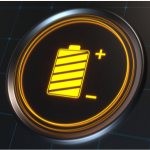 Extended Lifespan
Extended Lifespan Enhanced Safety
Enhanced Safety Eco-Friendly Choice
Eco-Friendly Choice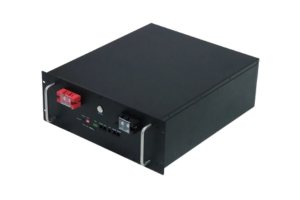
• Nominal Voltage: 48V
• Nominal Capacity: 100AH @ 0.2C
• Energy: 4800Wh
• Charge Voltage: 54.75± 0.2 V
• Weight: about 45.0Kg
• Size: 440*430*177mm
• Maximum Modules in parallels: 16P
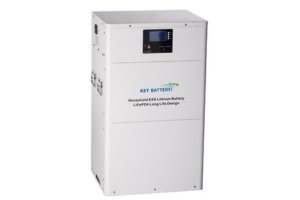
• Nominal Voltage: 48V
• Normal Capacity(25°C, 0.2C ): 10240Wh
• Voltage window (Vdc): 44.8~58.4V
• Max.pulse discharge current (A): 150A 10S
• BMS communication: CAN/RS485/RS232
• Battery Type: LiFePO4(BYD OPC)
• Maximum Modules in parallels: 16P
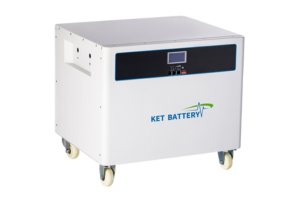
• Nominal Voltage: 48V
• Normal Capacity(25°C, 0.2C ): 10240Wh
• Terminal: M8
• BMS communication: CAN/RS485/RS232
• Safety standard: UN38.3.MSDS
• Voltage window (Vdc): 44.8~58.4V
• Max. number of parallels supported: 16
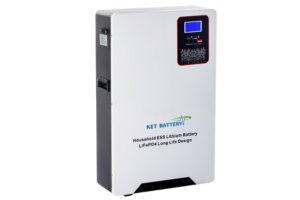
• Nominal Voltage: 24V
• Normal Capacity(25℃, 0.2C): 5120Wh
• Voltage window (Vdc): 22.4-29.2V
• Max.pulse discharge current ( A): 200A 30S
• Storage temperature: 0℃ ~ 30℃
• BMS communication: CAN/RS485/RS232
• Maximum Modules in parallels: 16P
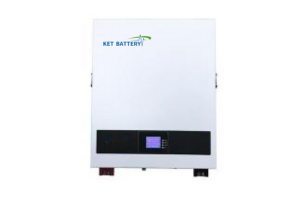
• Nominal Voltage: 48V
• Nominal Capacity: 50AH @ 0.2C
• Energy: 2560Wh
• Internal Resistance (AC): < 50 mΩ
• Efficiency of Charge: 100% @ 0.5 C
• BMS communication: CAN, RS485, RS232
• Maximum Modules in parallels: 16P
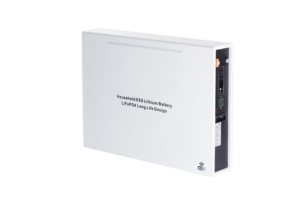
• Nominal Voltage: 24V
• Normal Capacity(25℃, 0.2C): 5120Wh
• Voltage window (Vdc): 22.4-29.2V
• Max.pulse discharge current ( A): 200A 30S
• Storage temperature: 0℃ ~ 30℃
• BMS communication: CAN/RS485/RS232
• Maximum Modules in parallels: 16P
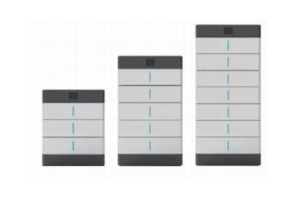
• Nominal Voltage: 48V
• Nominal Capacity: 100AH @ 0.2C
• Energy: 5120Wh
• Monthly Self Discharge: Less than 3.5% per month at 25℃
• Container: Metal plate
• BMS communication: CAN/RS485/RS232
• Maximum Modules in parallels: 16P
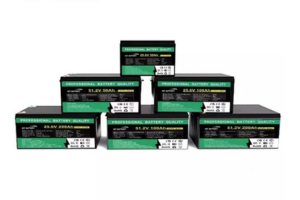
• Nominal Voltage: 12V - 48V
• Normal Capacity: 7Ah - 1000Ah
• Voltage window (Vdc): 22.4-29.2V
• Size: customized
• Storage temperature: 0℃ ~ 30℃
• BMS communication: customized
• Housing: customized
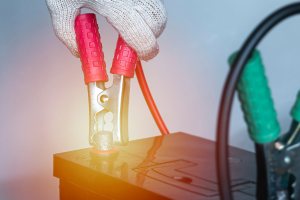
We understand that every solar power system is unique. At KET, we offer customized solar battery solutions tailored to your specific requirements, including capacity, voltage, size, and design, ensuring seamless integration into your solar setup.

With over 13 years of experience and partnerships with renowned companies like LG and Samsung, KET brings industry-leading expertise to deliver top-quality custom LiFePO4 solar batteries and exceptional customer service.

As an ISO 9001 certified solar battery manufacturer, KET guarantees standardisation of production and quality control. Additionally, our solar batteries comply with certifications such as CE, FCC, UN38.3, and MSDS, ensuring the highest quality and safety standards.

With an impressive production capacity of up to 2000 battery packs per day (Ahead of most China solar battery manufacturers), KET can meet the growing demand for LiFePO4 solar batteries, ensuring prompt delivery and availability for your renewable energy projects.
 UL
UL CB
CB MSDS
MSDS UN38.3
UN38.3 CE
CE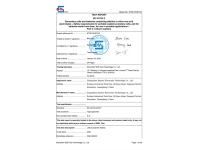 IEC-62133
IEC-62133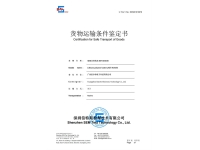 Certification for Safe Transport of Goods
Certification for Safe Transport of Goods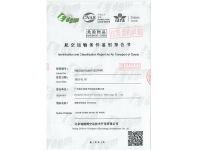 air transport
air transport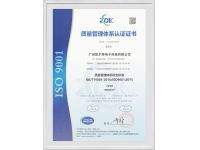 ISO 9001 2015
ISO 9001 2015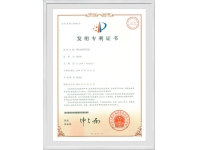 invention of Lithium battery testing equipment
invention of Lithium battery testing equipment Battery charge and discharge test system
Battery charge and discharge test system Rechargeable battery performance testing equipment
Rechargeable battery performance testing equipment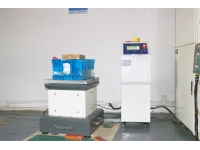 Vibration Testing Machine
Vibration Testing Machine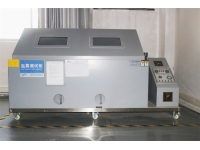 Salt spray test cabinet
Salt spray test cabinet Lithium battery automatic testing equipment
Lithium battery automatic testing equipment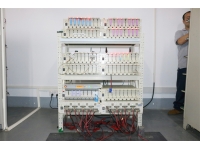 Discretionary cabinets
Discretionary cabinets Integrated Tester
Integrated Tester Battery Detector
Battery Detector Automatic Wire Stripping Machine
Automatic Wire Stripping Machine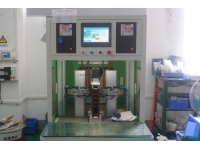 Automatic spot welding machine
Automatic spot welding machineAs an expert in the field, I'll share you with the different types of solar batteries and their lifespan. Let's explore!
Lead-Acid Solar Batteries:
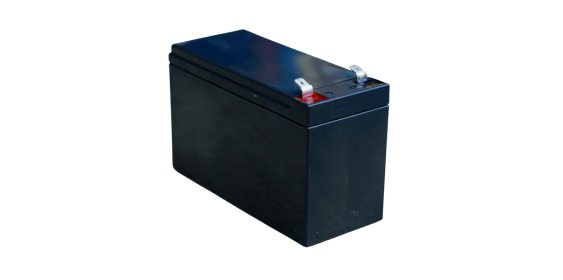
With an average lifespan ranging from 3 to 5 years, lead-acid batteries provide steady power supply and support your energy needs over an extended period. But lead-acid batteries have more serious environmental problems.
Lithium-ion Solar Batteries:
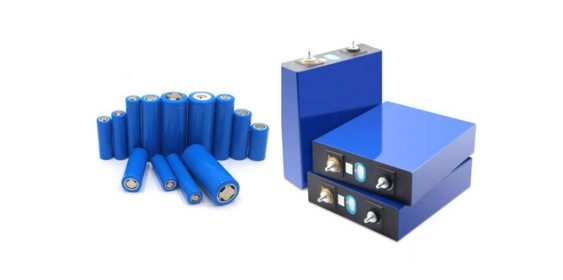
Lithium-ion solar batteries can last more than 5 years. And as the most outstanding representative of the Lithium-ion battery family, LiFePO4 battery has an estimated lifespan of 8 to 20 years. LiFePO4 batteries have excellent all-round performance and are very environmentally friendly, making them an excellent choice as SOLAR batteries.
Flow Batteries:
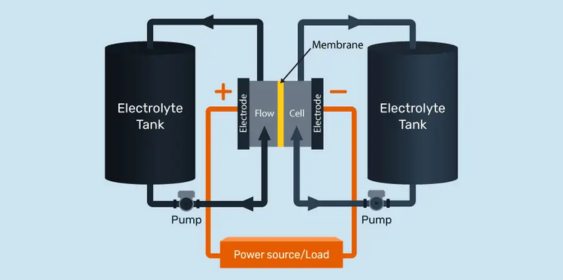
Unlock the potential of flow batteries, the guardians of sustained solar power. These remarkable systems can endure up to 25 years, offering a reliable and enduring energy storage solution.
It may seem like you have a wide range type of solar batterier to choose from. But as a solar battery manufacturer for many years, we can tell you responsibly that LiFePO4 is the better choice for solar cells. LiFePO4 solar batteries are more environmentally friendly, have a longer life and are safer, which are all important reasons why it is the first choice.
 Determine the energy requirements: First, you need to determine the daily electricity consumption of your house. This information can be obtained by looking at your electricity bill. For example, if you used 300Kwh of electricity in April, then your daily electricity consumption would be 300kwh/30 = 10kWh.
Determine the energy requirements: First, you need to determine the daily electricity consumption of your house. This information can be obtained by looking at your electricity bill. For example, if you used 300Kwh of electricity in April, then your daily electricity consumption would be 300kwh/30 = 10kWh.
 Battery capacity requirements: We already know that we need 10kwh of electricity per day. Then theoretically we need a battery capacity of 10kwh. But in practice, we also need to consider the depth of discharge of the battery, such as the common lithium-ion solar battery. Their recommended DOD (depth of discharge) is 80%. So the actual battery capacity required is 10kWh/80% = 12.5kWh.
Battery capacity requirements: We already know that we need 10kwh of electricity per day. Then theoretically we need a battery capacity of 10kwh. But in practice, we also need to consider the depth of discharge of the battery, such as the common lithium-ion solar battery. Their recommended DOD (depth of discharge) is 80%. So the actual battery capacity required is 10kWh/80% = 12.5kWh.
 Calculate the number of batteries required: There are many different capacities of solar cells available on the market, such as 5kWh, 10kWh, 20kWh. So let's take a 5kWh solar battery as an example, the number of batteries required (in parallel) is 12.5kWh/5kWh = 2.5 ≈ 3, which means that three 5kWh solar batteries are required, which can be connected in parallel to meet the needs of a power a house.
Calculate the number of batteries required: There are many different capacities of solar cells available on the market, such as 5kWh, 10kWh, 20kWh. So let's take a 5kWh solar battery as an example, the number of batteries required (in parallel) is 12.5kWh/5kWh = 2.5 ≈ 3, which means that three 5kWh solar batteries are required, which can be connected in parallel to meet the needs of a power a house.
 Embrace the Sun's Warm Embrace
Embrace the Sun's Warm Embrace The Voltage Clue
The Voltage Clue
 Current: The Flow of Energy
Current: The Flow of Energy
 On-grid systems: If you have a on-grid solar system, where your solar panels are connected to the grid, you don't need batteries. The excess power generated during the day will be transferred to the grid and when your solar panels are not generating enough power (e.g. at night), you can draw power from the grid. In this case, the grid acts as a virtual "battery" for your system.
On-grid systems: If you have a on-grid solar system, where your solar panels are connected to the grid, you don't need batteries. The excess power generated during the day will be transferred to the grid and when your solar panels are not generating enough power (e.g. at night), you can draw power from the grid. In this case, the grid acts as a virtual "battery" for your system.
 Off-grid systems: Off-grid systems cannot be connected to the grid, in which case your solar system needs batteries. Storage batteries store the excess solar energy generated during the day for use at night or when the sun is not shining enough. These batteries allow you to have a self-sustaining power source and can provide electricity when the sun is not shining.
Off-grid systems: Off-grid systems cannot be connected to the grid, in which case your solar system needs batteries. Storage batteries store the excess solar energy generated during the day for use at night or when the sun is not shining enough. These batteries allow you to have a self-sustaining power source and can provide electricity when the sun is not shining.
 Hybrid systems: Some solar systems combine grid-tied and off-grid functionality. These hybrid systems can use batteries to store excess solar energy for use during peak demand periods or in the event of a power outage. At this point your solar system will also need batteries.
Hybrid systems: Some solar systems combine grid-tied and off-grid functionality. These hybrid systems can use batteries to store excess solar energy for use during peak demand periods or in the event of a power outage. At this point your solar system will also need batteries.
 Battery types: The battery characteristics of different types of batteries are also different and should never be mixed. For example, lead-acid batteries and lithium batteries should never be mixed.
Battery types: The battery characteristics of different types of batteries are also different and should never be mixed. For example, lead-acid batteries and lithium batteries should never be mixed.
 Capacity and age: Even for the same type of battery from the same manufacturer, the capacity of the old and new batteries will be different. This is because the actual capacity of the battery decreases with age. And when batteries of different capacities are used together it can lead to uneven charging and discharging, which can seriously affect battery performance.
Capacity and age: Even for the same type of battery from the same manufacturer, the capacity of the old and new batteries will be different. This is because the actual capacity of the battery decreases with age. And when batteries of different capacities are used together it can lead to uneven charging and discharging, which can seriously affect battery performance.